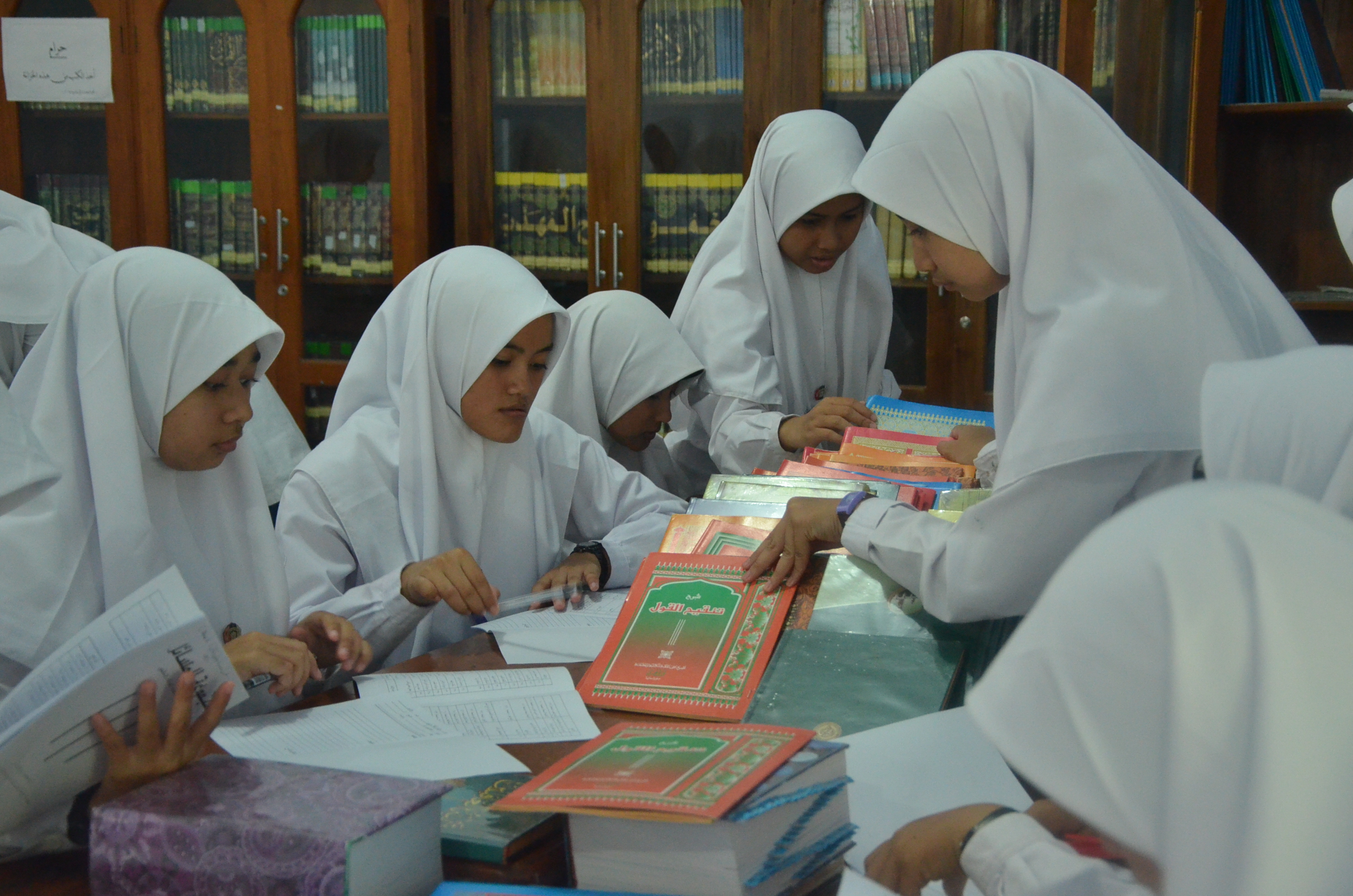The challenges of the digital era should not erode the culture of literacy. Strengthening these three efforts is essential for advancing civilization. Without knowledge and wisdom, how can civilization progress? This is where the role of santri becomes crucial.

Empowering Literacy Culture in Pesantrens
The term literacy generally refers to the skills of reading and writing. Essentially, a literate person is someone who has mastery in both reading and writing skills. Why is it commonly said ‘read before you write’? Because someone intending to write would naturally engage in reading activities first. Simply put, one must possess before giving.
Literacy becomes an inseparable part of the academic integrity within scholarly institutions, including Islamic boarding schools (pesantren). As establishments deeply rooted in the practice of listening, reading, and writing, it’s imperative for these pesantrens to cultivate literacy among their students (santri). Fundamentally, literacy forms a crucial part of the pesantren culture, one that deserves appreciation and preservation. Moreover, through literacy, the teachings of the pesantren can be effectively communicated in relevant and flexible ways.
Pesantrens have been able to produce literary works by scholars, serving as tangible evidence of their literacy, such as manuscripts or yellow books (kitab kuning) used for study and scholarly discourse within the pesantren community. For instance, a well-known book by a Nusantara scholar, al-Amṡilah al-Taṣrīfiyyah, was compiled by KH Muhammad Ma’shum at the age of 19. Similarly, Syeikh Ihsan Jampes dedicated himself to writing at the age of 33. Many experts have acknowledged the depth of their works, one notable example being the book Sirāj al-Ṭālibīn, a commentary on Imam Ghazali’s Minhāj al-‘Âbidīn. These are the ‘verses of the pesantren’ that should be preserved by its students.
The tradition of writing in the historical records has long been a pivotal point in the advancement of the Nusantara civilization. In the 15th-16th centuries, manuscript writing, using Pegon script, was prevalent in Pesantren Giri. Due to internal conflicts, Pesantren Giri faced setbacks. Subsequently, this tradition continued in Pesantren Kalidangu Demak and underwent metamorphosis over time.
Considering the current landscape, where technology and information continue to advance, the strength of literacy seems to gradually diminish. While the positive impact includes easy access to Islamic literatures and spreading religious teachings in the online world, the progress in technology and information also brings negative consequences if not handled wisely. For instance, quotations from various texts are often shared in posts. Although not universally applicable, this trend has led people to become less inclined to open books and read them thoroughly to understand the context. In other words, it fosters a habit of skimming through texts.
In order to empower the literacy culture in pesantren, three initiatives need to be pursued. Firstly, developing libraries within these pesantrens. Secondly, collecting various literary works, both books and manuscripts. Thirdly, fostering the habit of reading texts or books and then transforming that knowledge into written products.










